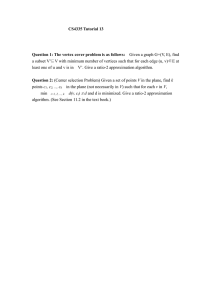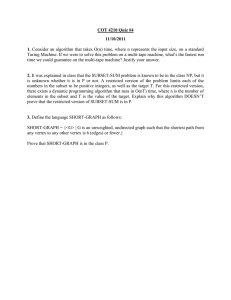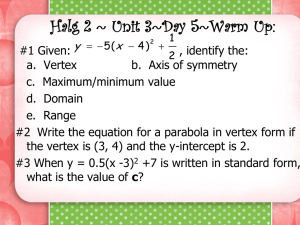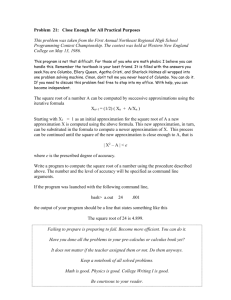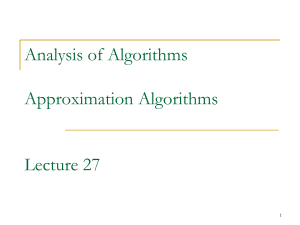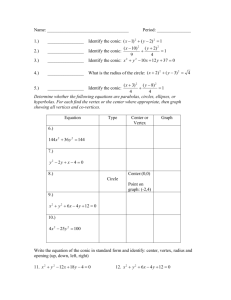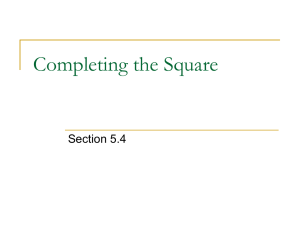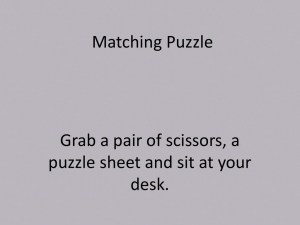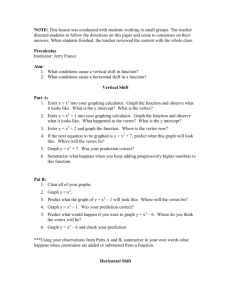Approximation Algorithms Homework: Subset Sum, Bin Covering, Vertex Cover
advertisement
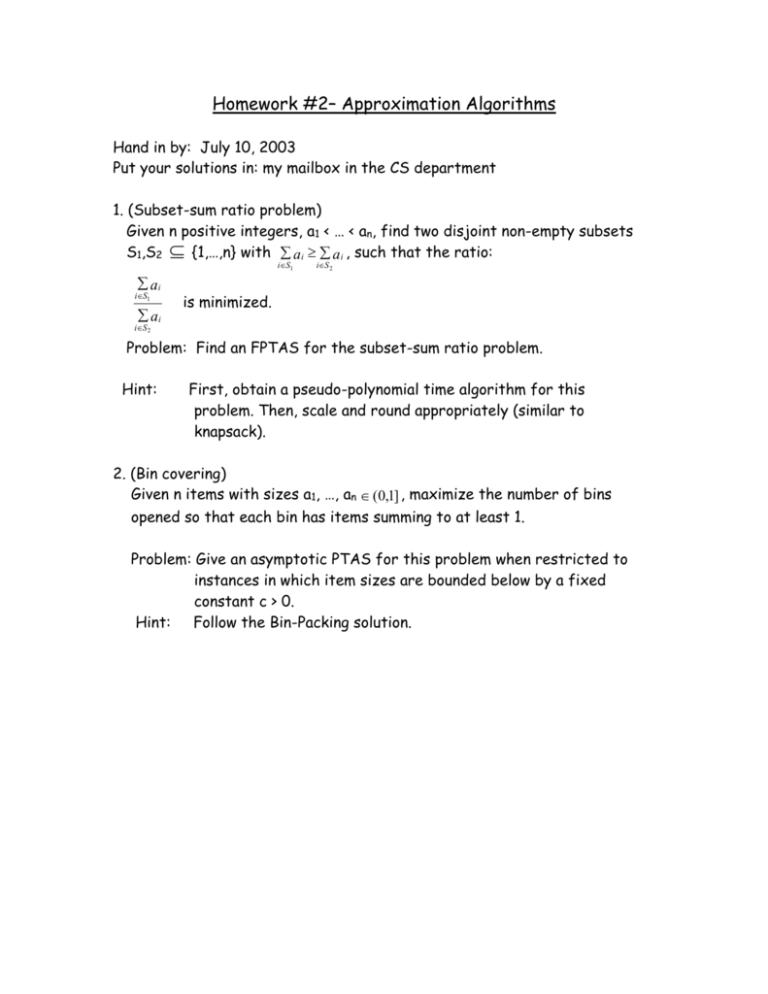
Homework #2– Approximation Algorithms
Hand in by: July 10, 2003
Put your solutions in: my mailbox in the CS department
1. (Subset-sum ratio problem)
Given n positive integers, a1 < … < an, find two disjoint non-empty subsets
S1,S2 {1,…,n} with ai ai , such that the ratio:
iS1
ai
iS1
ai
iS 2
is minimized.
iS 2
Problem: Find an FPTAS for the subset-sum ratio problem.
Hint:
First, obtain a pseudo-polynomial time algorithm for this
problem. Then, scale and round appropriately (similar to
knapsack).
2. (Bin covering)
Given n items with sizes a1, …, an (0,1] , maximize the number of bins
opened so that each bin has items summing to at least 1.
Problem: Give an asymptotic PTAS for this problem when restricted to
instances in which item sizes are bounded below by a fixed
constant c > 0.
Hint: Follow the Bin-Packing solution.
Notation: LP = Linear Program, IP = Integer Program
3. (capacitated vertex cover )
Input: (1) An undirected graph G = (V,E) with (2) a non-negative weight
function w:V->R+ (Note: w is specified on the vertex set) and
(3) an integer K.
Feasible solution:
A function x:V->N (i.e. from the vertex-set to the
non-negative integers), such that there exists an orientation of
the edges ( )הכוונה של הקשתותof G in which the number of edges
directed into vertex v V is at most Kxv.
Optimization function: Minimize, wv xv , the weight of the cover.
vV
Consider the following IP for this problem.
In this formulation, yev = 1, denotes that the edge e E is oriented to
vertex v.
Min wv xv
vV
y eu y ev
e (u , v) E
Kxv y ev 0
v V
xv y ev
v e E
y ev {0,1}
v e E
xv {0,1,2,...}
v V
e ( v )
a. Explain shortly why any feasible solution x for this IP corresponds to
a capacitated vertex cover.
b. Relax this IP to an LP. Describe an approximation algorithm for this
problem based on LP rounding. Your algorithm should give a 4approximation.
c. Suppose that we remove the constraints xv y ev , v e E from the
above IP. First show that the optimal solution to the IP would yield
an optimal solution for the original problem. Can we still get an O(1)
approximation by LP-rounding?
4. (Hitting set with 5-bounded sets)
Let U = {e1, …, en} be a universe of elements and S = {Si} ik1 is a set
system over U, i.e. for each i, Si U. Moreover, each set Si is
5-bounded, i.e. |Si| 5.
A hitting set with 5-bounded sets is a subset S’ S that contains at
least one element from each subset Si in S.
Problem: Find a minimal hitting set with 5-bounded sets
(a)
(b)
(c)
(d)
write an LP for the problem (i.e. a relaxed IP)
write the dual of the LP
use the primal dual method for an approximation algorithm.
state and prove the approximation factor you get.
